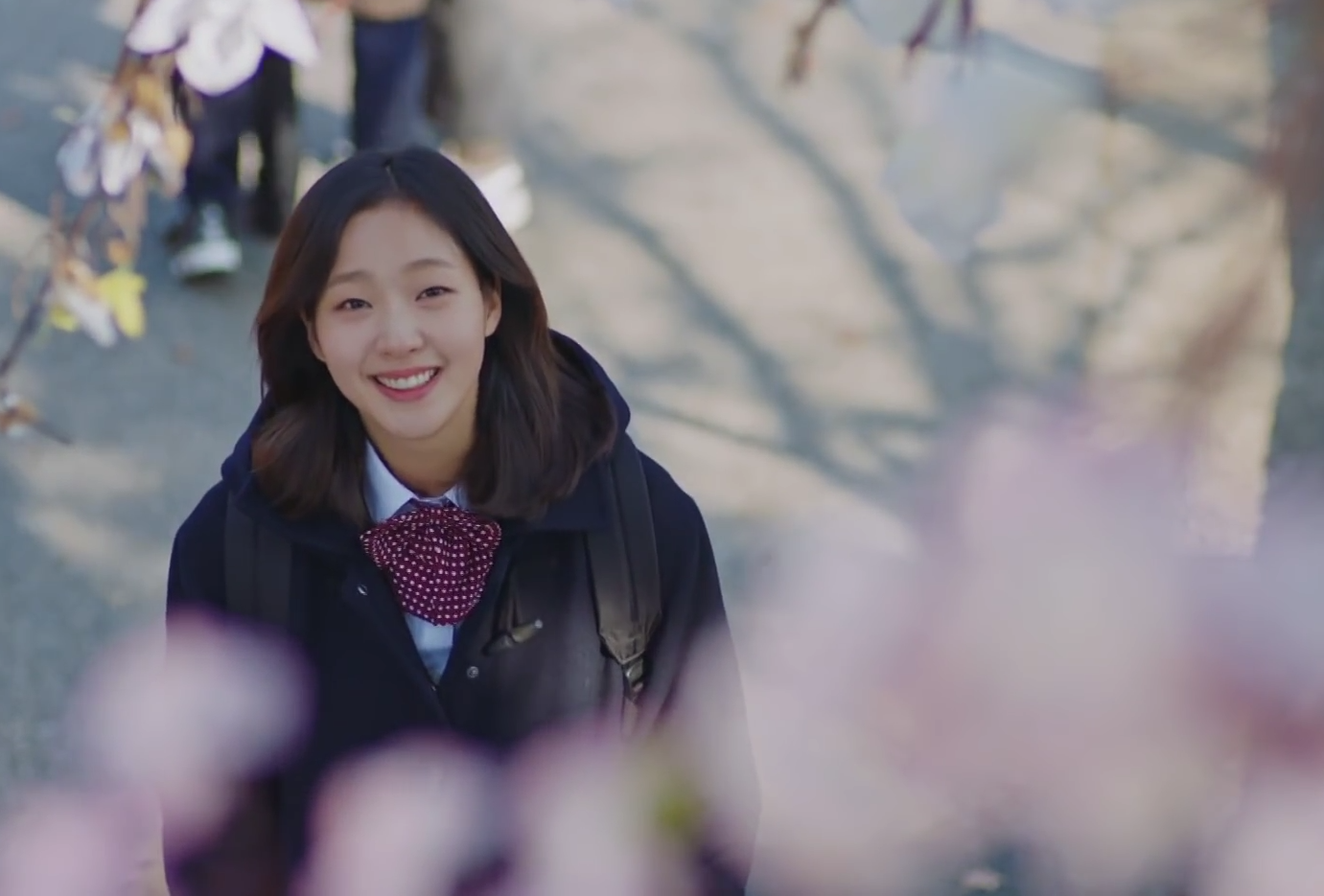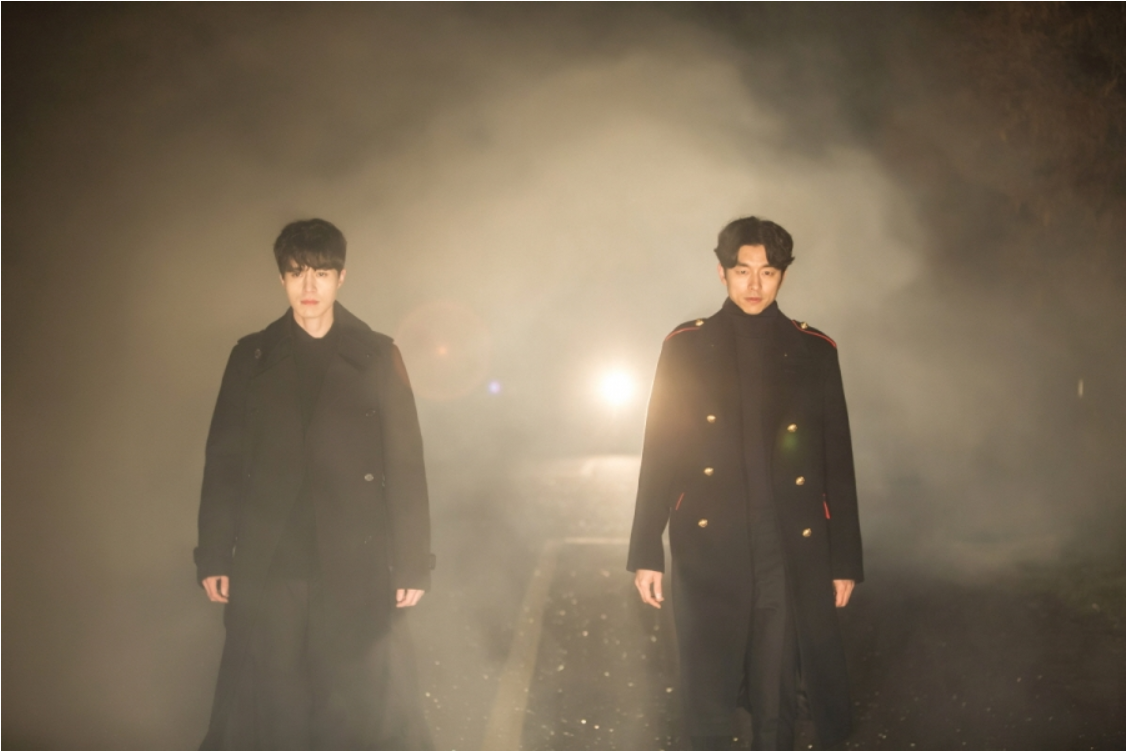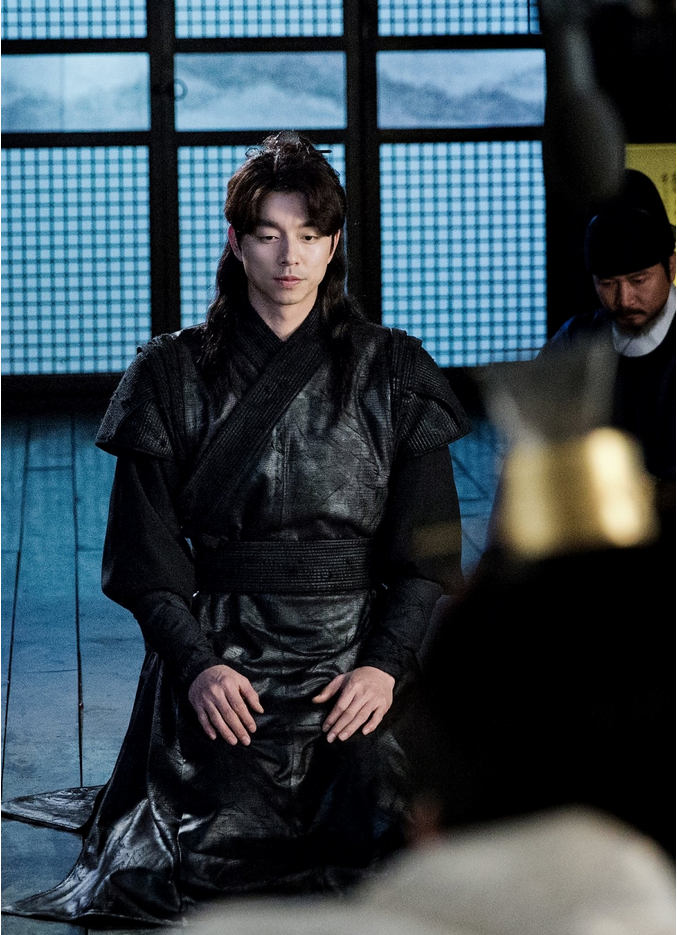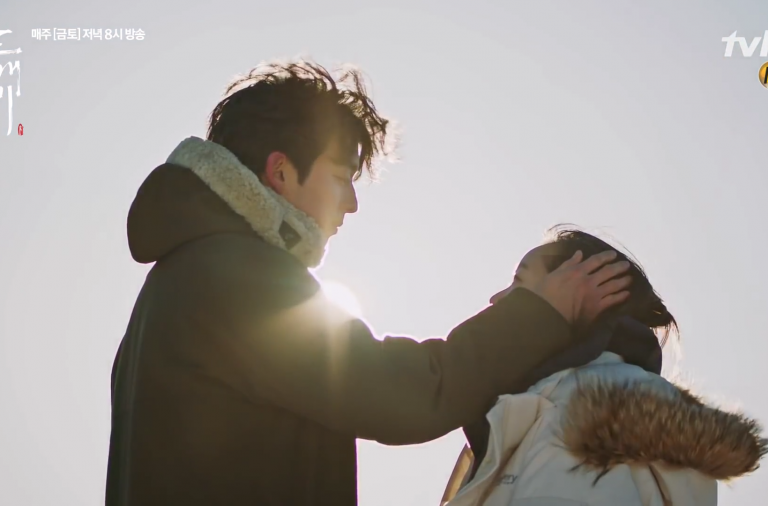 In a recent article by The Straits Times, Goblin (also referred to as Guardian: The Lonely and Great God), the highly rated Korean drama, was labelled as controversial with regards to the way its characters are crafted and portrayed to its audience. The drama’s female characters are described as trapped within a fairy tale universe, where the magical and supernatural contribute to the construction of a fantasy in the everyday – a fantasy that is transgressive of social boundaries and belittling of the modern woman.
In a recent article by The Straits Times, Goblin (also referred to as Guardian: The Lonely and Great God), the highly rated Korean drama, was labelled as controversial with regards to the way its characters are crafted and portrayed to its audience. The drama’s female characters are described as trapped within a fairy tale universe, where the magical and supernatural contribute to the construction of a fantasy in the everyday – a fantasy that is transgressive of social boundaries and belittling of the modern woman.
For those who have yet to watch the drama, there are spoilers ahead!
The drama offers a captivating story line of a high school girl, Ji Eun-tak, played by Kim Go-eun, who is destined to be the Goblin’s bride. The drama adapts the character of the Goblin, or termed a dokkaebi in Korean, from folklore about a supernatural being with superhuman abilities. In the drama, Gong Yoo takes on the character of the Goblin named Kim Shin, a formidable warrior that had been impaled by his own sword centuries ago and has since been turned into an immortal.
Beyond the clearly stunning appearance of Gong Yoo as the male protagonist, his character has also amassed a fortune over his centuries of living in this world. From a mansion, to luxurious clothes and even countless assets scattered all over the world, the Goblin lives as a fantasy even within the show. Juxtaposed against Eun-tak, who is an orphan, ostracised by her schoolmates and her relatives, and struggling to survive through her financial hardships, Kim Shin’s appearance is a gift from heaven. Eun-tak is able to summon Kim Shin by blowing out a flame, adding to the fantastical construct of two individuals match-made and inseparable by fate. He shelters her and protects her from harm, acting as a knight in shining armour despite her own valiant attempts at surviving in this cruel world.
Thinking about supernatural romances, Korean dramas have established their own array of tropes and clichés. The Vampire trope is a unique one adopted from Western culture and reconfigured into their own. Romances in dramas have their list of must-have scenes and scenarios. Goblin, too, does not fall away from utilising its fair share of literary tropes.
The Straight Times article mentioned previously critiques the drama’s female protagonist as being entrapped within a “Cinderella stereotype” without further elaboration. We are all familiar with the story of Cinderella: with the help of a fairy godmother, she rises from rags to riches and escapes from the exploitation of her wicked stepmother. Goblin’s Ji Eun-tak manages to slip away from the control of her Aunt and cousins who are trying to cheat her of her deceased mother’s insurance money. However, she is only enabled to do so with the help of Kim Shin, who himself is invested in her well being because she had been rumoured to be the Goblin’s wife. There is an invisible fairy godmother at work here in bringing the two protagonists together, but it does not offer a counterargument against this fairy tale story plot.
 The question to pose then is whether Ji Eun-tak’s Cinderella-esque life is one that we should lament as viewers. The article quotes drama critic Kim Sun-young, who mentions it to be “a shame she is unable to escape the Cinderella stereotype, especially when her male partner is so almighty.” An implication with regards to tying Ji Eun-tak with the Cinderella stereotype would be the generation of a perception that she is nothing more than a damsel in distress, smitten by the charms of a prince that seems far out of her reach. Cinderella’s redeeming point would then be her humility and endurance of hardships.
The question to pose then is whether Ji Eun-tak’s Cinderella-esque life is one that we should lament as viewers. The article quotes drama critic Kim Sun-young, who mentions it to be “a shame she is unable to escape the Cinderella stereotype, especially when her male partner is so almighty.” An implication with regards to tying Ji Eun-tak with the Cinderella stereotype would be the generation of a perception that she is nothing more than a damsel in distress, smitten by the charms of a prince that seems far out of her reach. Cinderella’s redeeming point would then be her humility and endurance of hardships.
On the other hand, it is arguable that as much as Eun-tak’s life trajectory appears to mirror that of Cinderella’s, she is a female character that has greater autonomy than Cinderella ever had. Indeed, her interference in the life of other characters including Kim Shin comes with her gift of being able to see dead people and a range of supernatural abilities like summoning the Goblin. However, her responsibility goes beyond merely having her foot fitting a glass slipper. She is definitely the right fit once she is affirmed as the Goblin’s wife, but her story does not end there. Her subsequent choices could determine the life or death of Kim Shin.
Eun-tak endures hardships just as Cinderella does but her narrative extends beyond a simple fairy tale happy ending. Her gifts do not just disappear at midnight. Rather, she has to bear the burden of the abilities bestowed upon her – including deciding whether to draw the sword out of Kim Shin’s chest and subsequently end his immortal life. As the two begin to fall in love with each other, this becomes less of a transaction between the two. Kim Shin’s own desire to end his long and weary life wavers as he finds greater value in living with love.
The decision weighs heavily on Eun-tak as she slowly comes to realise the significance of being able to touch and see the sword in Kim Shin’s chest. She avoids him, runs away from home, and is eventually brought back into the shelter of Kim Shin’s home. The turbulence of emotions point towards a far less simple story than being whisked away by a prince, as Cinderella is. Arguably, all the decisions made by Eun-tak, with the onus of drawing the sword, can be seen as attempts to break away from the Cinderella stereotype she has been labelled with.
The article mentions that culture critic Jung Duk-hyun attributed the popularity of the character, Kim Shin, to the “yearning for all-powerful male figures who can solve the problems of modern women with increasingly stressful lives.” However, the allure of the character of Kim Shin and the relationship between the two protagonists might go beyond just offering an idealised, worry-free life for its viewers. Such a statement comes across as one that fails to recognise the value of the drama’s character landscape that emphasises precisely the fallible nature of even the most powerful of spiritual beings, as well as the drama’s recognition of strong female characters.
 We need to look beyond this fairy tale construct that is placed upon the drama because of its involvement of supernatural beings with superhuman abilities. If we were to judge it as a fantasy and an idealised fairy tale situation, we would be missing the point the drama seems to be driving at. These supernatural beings, as much as they have wealth or powers, they are limited in their own ways. The Grim Reaper, played by Lee Dong-wook, struggles with the human emotion of love while Kim Shin himself is fated to relinquish control over his own life and death. On the other hand, it is ordinary individuals like Eun-tak that are given the power of choice and given voice to carve out their own paths.
We need to look beyond this fairy tale construct that is placed upon the drama because of its involvement of supernatural beings with superhuman abilities. If we were to judge it as a fantasy and an idealised fairy tale situation, we would be missing the point the drama seems to be driving at. These supernatural beings, as much as they have wealth or powers, they are limited in their own ways. The Grim Reaper, played by Lee Dong-wook, struggles with the human emotion of love while Kim Shin himself is fated to relinquish control over his own life and death. On the other hand, it is ordinary individuals like Eun-tak that are given the power of choice and given voice to carve out their own paths.
Ji Eun-tak is more than just a Cinderella-like figure that is lifted from her poverty into a life of royalty and wealth. Ignoring the supernatural beings that cross paths with her, she is portrayed as a round character that, too, has to negotiate with dilemmas and inevitabilities, with hardships and desperation. It is fate that has brought the two together, but that is as far as the Cinderella stereotype goes. Beyond the point of fitting her feet into the glass slipper, Eun-tak can effectively be said to be constructing a path of her own, albeit within this strange realm between ordinary and supernatural.
On the contrary, the drama is not entirely flawless, at least from my perspective of it. The immense age gap between Kim Shin, who is said to be 939 years old and has the appearance of a 30-something year old man, and Eun-tak, a high schooler, is a discomforting premise. Kim Shin can be thought of as a “Daddy-Long-Legs” figure who provides for Eun-tak, from giving her a home and feeding her to paying for her college fees.
For those unfamiliar with Jean Webster’s 1912 novel, “Daddy-Long-Legs,” the text centers around an orphan girl that is sent to college to study writing by an anonymous benefactor. Her only impression of him is his tall and thin build. Hence, she addresses him as Daddy-Long-Legs and sees him as the father she was never able to have.
The relationship drawn out between Kim Shin and Ji Eun-tak can be viewed in the same manner, at least in terms of the exchange in resources. The consequent affections that develop between the two become increasingly ambiguous. Even within the drama itself, Eun-tak addresses Kim Shin as “ahjussi,” which translates into “uncle.” Yet, they speak fondly about each other, with Kim Shin confessing Eun-tak to be his first love.
 It is hard to pinpoint whether Kim Shin is a romantic figure or whether he takes on the role of a surrogate father for Eun-tak. Perhaps, it is intended to be both, even though such a thought seems fairly discomforting for me. With this question of blurred social relationships in mind, is it then appropriate to suspend our feelings of discomfort simply because we can use fiction as an excuse for boundaries to be collapsed?
It is hard to pinpoint whether Kim Shin is a romantic figure or whether he takes on the role of a surrogate father for Eun-tak. Perhaps, it is intended to be both, even though such a thought seems fairly discomforting for me. With this question of blurred social relationships in mind, is it then appropriate to suspend our feelings of discomfort simply because we can use fiction as an excuse for boundaries to be collapsed?
I do not have an answer for it because I find myself growing fond of the relationship between the two protagonists. Perhaps the drama does require us to forgo our preconceptions of what is acceptable or not, simply because immortality works based on its own rules. To a certain extent, the drama has been a lesson in suspending judgement and finding value beyond the familiar boundaries of our everyday. It speaks of the beauty of fiction and the imagination to find outlets for happiness to sneak its way into our lives.
Certainly, the drama does feed the Disney-princess fantasy of having an attractive looking knight in shining armour come to the rescue of the female but which Korean drama does not? Narrowing down Korean dramas to those involving supernatural beings would already include recent popular hits like My Love From The Star and Scholar Who Walks The Night. The romantic lead of My Love From The Star is an alien with superhuman sight, hearing and speed. The male protagonist, played by Kim Soo-hyun, fits right on the bill of a gorgeous male lead. Similarly, Scholar Who Walks the Night stars Lee Joon-gi as Kim Sung-yeol, a vampire that is indubitably alluring, while at the same time subjected to the trope of having to “Always Save the Girl.”
It is not unusual for many television dramas, films and even storybooks to adopt the romantic clichés such as the one mentioned in Goblin. Why should Goblin be singled out for perpetuating such fantasies then? Admittedly, putting these tropes into motion panders to the fantasies of its audience. Furthermore, strongly advocating that females should only look towards all-powerful males to solve their problems is less than ideal. However, I would firmly maintain that Goblin attempts to reconfigure the age-old cliché by offering its female characters greater authority and voice.
Perhaps one solution would simply be to acknowledge the nature of a work of fiction as an escape from reality. We, as viewers, enter this fictional realm to live as another person and forget about the stresses of everyday life, albeit temporarily. There is nothing wrong in fantasising about a world where magic or aliens or goblins exist. We do it all the time when enjoying stories such as Lord of the Rings or Game of Thrones.
 Rather, it is most important that even in entering these imaginary worlds, we can recognise that Goblin finds itself as a drama teaching the value of human will and the power of an ordinary person in inflecting changes beyond himself. Though delivered in a fantastical and unrealistic manner, it remains a reminder that even the most inconspicuous individual can prove to be valuable in the larger scheme of things. More importantly, Goblin is currently an ongoing drama series. With the ending still unknown to us, it might be too early to pass an conclusive judgements about the nature of the drama. We might all be pleasantly surprised when the conclusion (or lackthereof) is made known to us.
Rather, it is most important that even in entering these imaginary worlds, we can recognise that Goblin finds itself as a drama teaching the value of human will and the power of an ordinary person in inflecting changes beyond himself. Though delivered in a fantastical and unrealistic manner, it remains a reminder that even the most inconspicuous individual can prove to be valuable in the larger scheme of things. More importantly, Goblin is currently an ongoing drama series. With the ending still unknown to us, it might be too early to pass an conclusive judgements about the nature of the drama. We might all be pleasantly surprised when the conclusion (or lackthereof) is made known to us.
(The Straits Times, TV Tropes [1][2]. Images via Management Soop, tvN)



